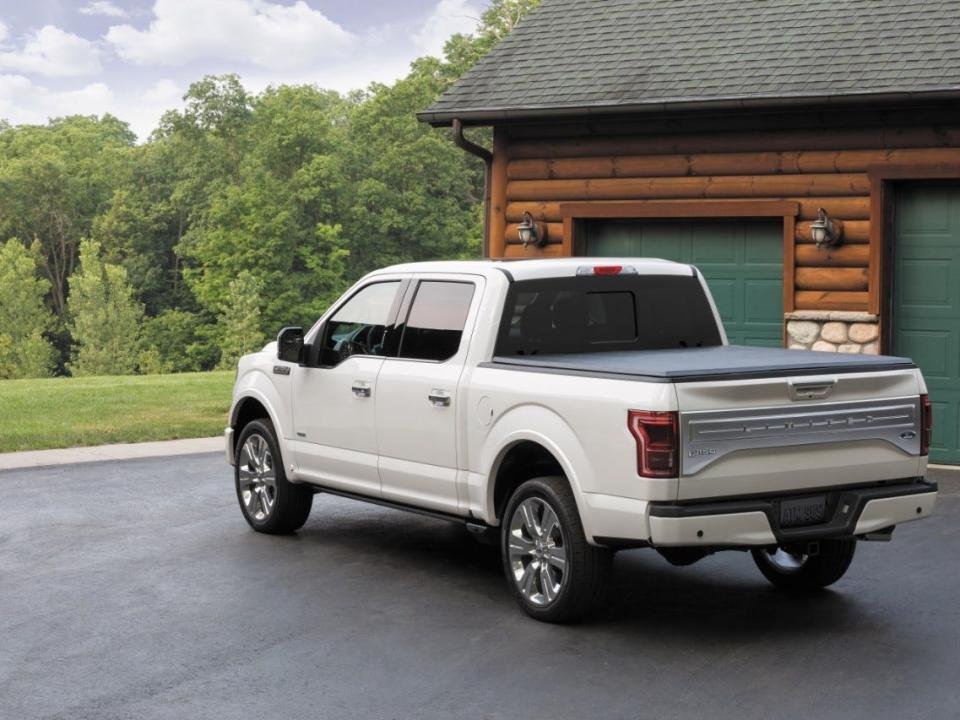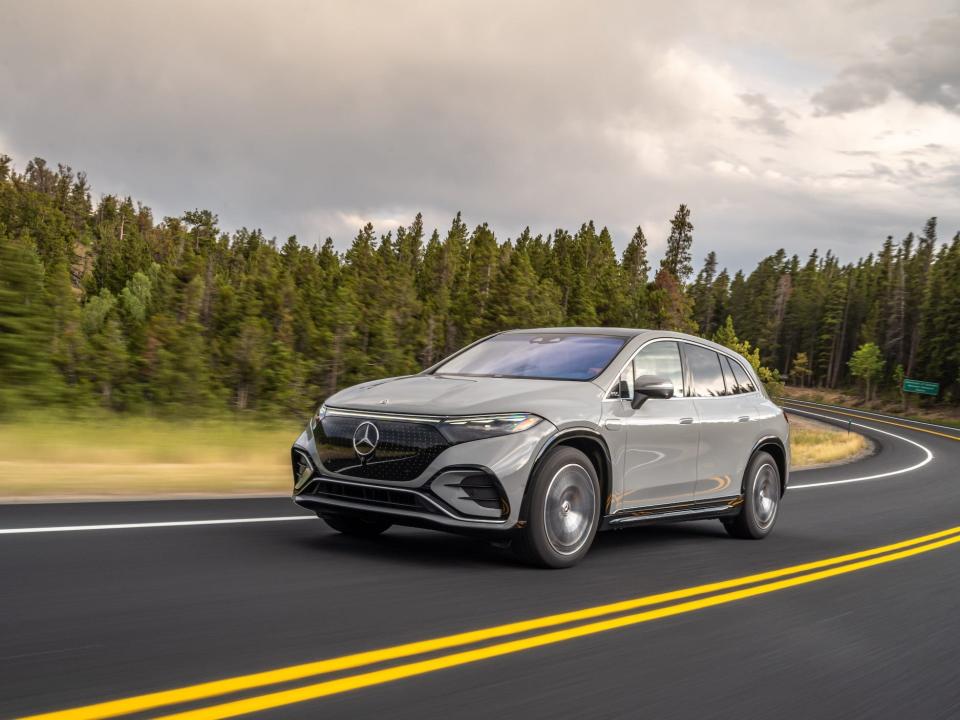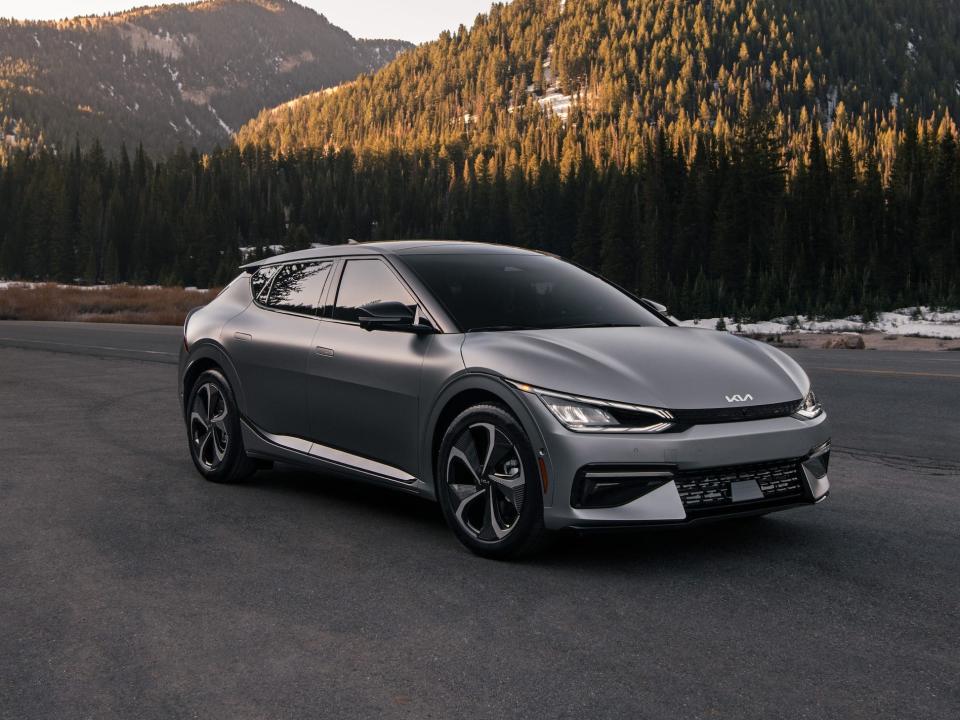Most cars still cost more to charge than to fill up with gas

A big part of the electric-car transition is cost parity with gas-powered vehicles.
While charging and fueling trucks cost the same, other cars and their electric counterparts differ, according to estimates by Anderson Economic Group.
It's not yet cheaper to charge some electric cars than to fuel them with gas, the study suggests, based on factors like electricity and gas costs, registration fees, and "deadhead" miles to and from chargers.
It's not yet cheaper to charge many electric cars than it would be to fuel their gas-powered counterparts up with gas, a new study indicates.
The cost of filling up at a gas station versus plugging in — and whether those two match up — largely depends on the segment and price, a study from Anderson Economic Group suggests, published Tuesday.
Trucks cost about the same to fuel and charge, while entry and midlevel cars and SUVs cost more to charge at home and in public than they do to fuel at a gas station, the group found. Luxury cars and SUVs fall somewhere in the middle.
The study was based on the latest information on gas and residential electricity prices, commercial charging prices, tax rates on fuel and electric cars, fuel economy details, and more to compare the cost of fueling versus charging for 100 miles of driving.
Unlike some other studies that simply compare gas and electricity costs, the AEG study amortized other costs, like charging installation and EV registration fees, as part of the cost of home charging, as well as "deadhead miles" — or time spent driving to and waiting at a station — as a cost part of commercial charging.
Of course, gas and electricity prices can fluctuate widely by region depending on time of year, oil prices, generation method, and more.
Cost parity between electric vehicles and internal-combustion engine cars is largely lacking; that is, EVs are generally more expensive (with an average transaction price of $53,438 in June, Kelley Blue Book reported) than gas ones (averaging $48,808).
Reaching cost parity is going to be a crucial part of boosting EV adoption, and it is improving — but that's not the end of the story. How much it costs to fuel versus charge vehicles is something consumers are taking into consideration, too.
Here's how the costs break down, on average, by segment — according to the study:

Trucks
For trucks, it roughly costs the same to fuel and charge, once other factors like registration fees and installing home-charging equipment are taken into account, the firm estimated. Whether you're fueling a Ford F Series, Ram 1500, or Chevrolet Silverado, it costs about $17.58 for every 100 miles. Trucks that take diesel cost about $17.10 to fuel for the same mileage. If you have a Rivian R1T or GMC Hummer, the cost to charge at home isn't much different; it's about $17.70 per 100 miles.
The cost to charge, however, skyrockets 48% to about $26.38 if a driver is mostly charging at public plugs —the most expensive way to charge, regardless of vehicle.

Entry-level cars and SUVs
If a driver owns a Nissan Versa, Hyundai Elantra, or Kia Forte, it's set to cost them about $9.78 in gas for every 100 miles.
But switch to a Nissan Leaf or Chevrolet Bolt, and that increases to about $12.55 in home-charging expenses. Head to a commercial charger, and a driver is looking at nearly $16 — 64% more than if you stuck with a gas-powered car in the same segment.

Luxury cars and SUVs
The luxury segment is interesting in that it actually might cost less to go electric — so long as you plug in at home.
It costs about $17.56 for every 100 miles for a gas-powered Lexus ES, Porsche Macan, Mercedes-Benz GLE, or similar vehicle.
The Porsche Taycan, Tesla Model X and Model S, and Mercedes-Benz EQS may cost about $13.50 if you're juicing up in your garage, saving you about 23%.
But if you drive one of these EVs and you mostly use public charging, you're back to square one, paying about $17.81 per 100 miles.

Midlevel cars and SUVs
For now, drivers will probably pay more to charge their Ford Mustang Mach-E, Kia EV6, or Volkswagen ID.4 than to fuel their internal-combustion engine counterparts like the Chevrolet Equinox, Nissan Altima, or Subaru Outback.
Charging any of these vehicles at home will run about $12.62 per 100 miles while fueling one at a gas station may run about $11.08. That difference, while not incredibly substantial, may add up — and when these drivers go to a public charging station, they're likely to pay about $16.10 per 100 miles.
Have you bought a vehicle and its electric equivalent (such as a Ford F-150 and the Lightning)? How much does it cost to charge compared with what you paid for fuel? If you have a tip or opinion to share, contact this reporter at astjohn@insider.com.
Read the original article on Business Insider

 Yahoo Autos
Yahoo Autos 